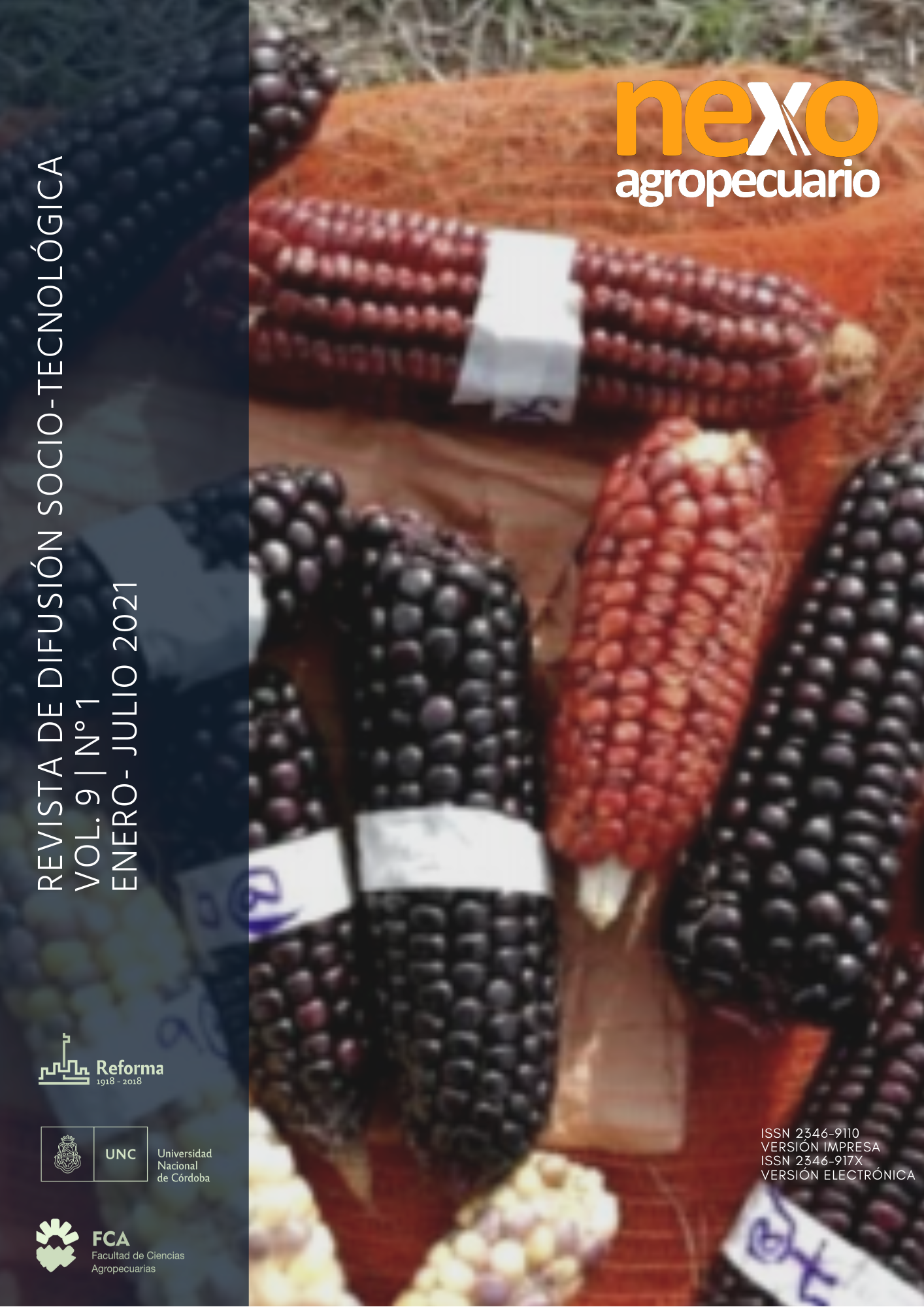DIDACTIC PROPOSAL FOR TEACHING PHYSICS BY EXPERIMENTATION: DEVELOPMENT OF PRACTICAL AGRONOMY ACTIVITY IN A VIRTUAL ENVIRONMENT
Keywords:
learning, virtual environment, knowledge integrationAbstract
This paper presents a didactic strategy used in Physics I (first year of Agronomic Engineering, Zootechnical Engineering and Bachelor's Degree in Agro-food Engineering) that was developed virtually during 2020. The objective of this strategy is that students integrate the acquired knowledge to solve a practical situation. Students are asked to evaluate the consistency of the soil with the possibility of carrying out the activity in their homes, using everyday materials. The activity was performed in three stages, with the accompaniment of the teachers through consultations by the virtual classroom. Being an activity planned with open slogans, each one had to organize their work and identify the important points to report; this allowed them to develop their creativity. Through this activity, more than 40% of the students were promoted. The students' feedback shows that this activity helped them understand how Physics is related to the field of Agronomy.
Downloads
References
Barab SA, Plucker JA. 2002. Smart People or Smart Contexts? Cognition, Ability and Talent Development in an Age of Situated Approaches to Knowing and Learning. Educational Psychologist 37(3): 165-182.
Campos AL. 2010. Neuroeducación: uniendo las neurociencias y la educación en la búsqueda del desarrollo humano. La educación Revista Digital Número 143.http://www.educoea.org/portal/La_Educacion_Digital/laeducacion_143/articles/neuroeducacion.pdf Último acceso mayo 2021.
Estupiñan Ricardo J, Cherrez Cano MI, Intriago Alcivar GC, Torres Vargas RJ. 2016. Neurociencia cognitiva e inteligencia emocional. La gestión pedagógica en el contexto de la formación profesional. Didasc@lia: Didáctica y Educación 7(4): 207-214
Friedrich G, Preiss G. 2003. Neurodidáctica. Mente y Cerebro 1(4): 39-45.
Meyer D, Turner J. 2002. Discovering Emotion in Classroom Motivation Research. Educational Psychologist 37(2): 107-114.
Pherez G, Vargas S, Jerez J. 2018. Neuroaprendizaje, una propuesta educativa: herramientas para mejorar la praxis del docente. Revista Civilizar 18(34): 149-166
Posner MI. 2004. Neural Systems and Individual Differences. Teachers Colleges Record 106(1): 24-30.
Posner MI, Rothbart MK. 2005. Influencing brain networks: implications for education. Trends in Cognitive Sciences 9(3): 25-30
Schutz PA, Lanehart SL. 2002. Introduction: Emotions in Education. Educational Psychologist 37 (2): 67-68.
Torres Rivera AD, Badillo Gaona M, Valentin Kajatt NO, Ramírez Martínez ET. 2014. Las competencias docentes: el desafío de la educación superior. Innovación educativa 14(66): 129-145
Downloads
Published
Issue
Section
License

This work is licensed under a Creative Commons Attribution-NonCommercial-ShareAlike 4.0 International License.
Aquellos autores/as que tengan publicaciones con esta revista, aceptan los términos siguientes:- Los autores/as conservarán sus derechos de autor y garantizarán a la revista el derecho de primera publicación de su obra, el cuál estará simultáneamente sujeto a la Licencia de reconocimiento de Creative Commons que permite a terceros compartir la obra siempre que se indique su autor y su primera publicación esta revista.
- Los autores/as podrán adoptar otros acuerdos de licencia no exclusiva de distribución de la versión de la obra publicada (p. ej.: depositarla en un archivo telemático institucional o publicarla en un volumen monográfico) siempre que se indique la publicación inicial en esta revista.
- Se permite y recomienda a los autores/as difundir su obra a través de Internet (p. ej.: en archivos telemáticos institucionales o en su página web) después del proceso de publicación del número de la revista, lo cual puede producir intercambios interesantes y aumentar las citas de la obra publicada. (Véase El efecto del acceso abierto).


